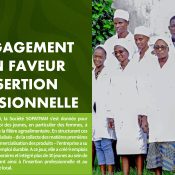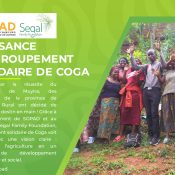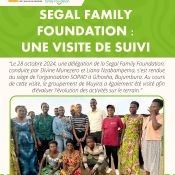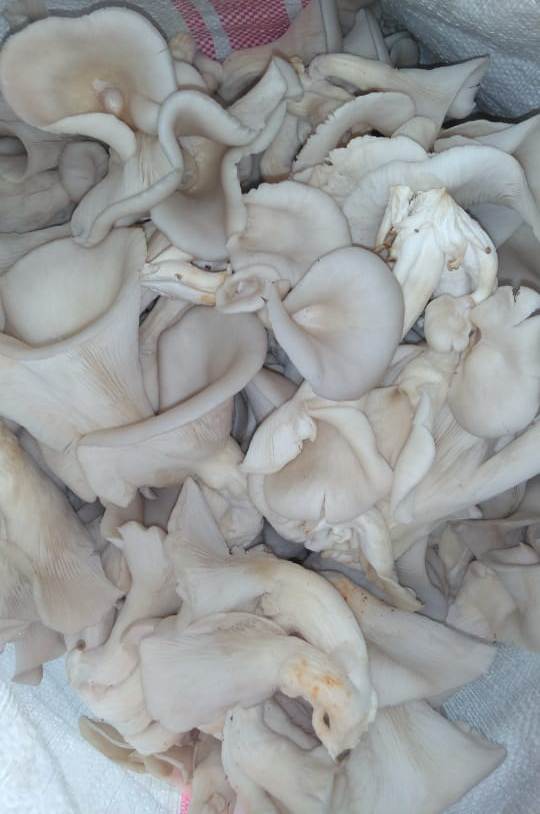
COPAD: Mushroom cultivation for a healthy diet
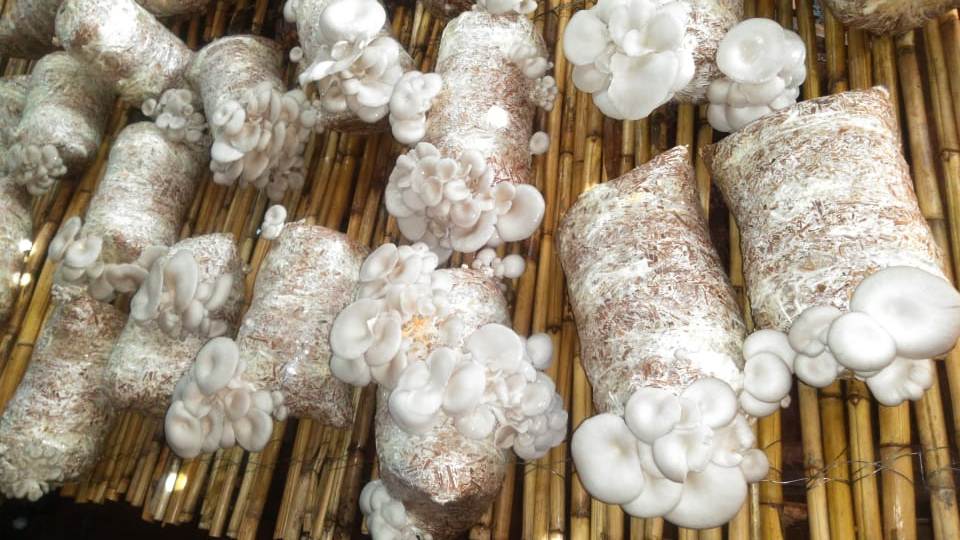
Mushroom cultivation is not well-known in Burundi. Over time, it is starting to appear in some kitchens. Although it is gaining popularity at a slow pace, it is one of the nutrient-rich foods with a variety of vitamins. Rich in calories, this food contains carbohydrates, proteins, lipids, and dietary fibers. It can also be a reliable dietary supplement to combat malnutrition observed in children under 5 and breastfeeding mothers. Furthermore, mushroom cultivation is becoming a reliable and fast source of income for small-scale rural farmers, with a selling price ranging from 3,500 to 5,000 BIF per kg.
The COPAD Cooperative has recently initiated the cultivation of oyster mushrooms, one of the varieties of edible mushrooms known and appreciated for its nutritional and anti-cancer properties. Experimented for the first time in plastic bags by Magos Ngabirano, a young beneficiary of the SOPAD consortium, the results are encouraging. He created a mushroom farm with 500 bags per cycle, to be harvested over a period of 21 days. On his small plot of 5m by 2m, he manages to achieve sales of around 5,000 BIF per day for 70 days. If the fermentation has been good, he just has to wait for the incubation period of a hen to make his first sales.
Rumors surrounding the mushroom
Mushroom cultivation was introduced in Burundi in 2010. Strong resistance persists regarding the consumption of this food, especially among the rural population, which hears rumors about the pleurotus being inedible. In some regions, it is even claimed that consuming mushrooms brings bad luck, hence the famous saying. « Nsubiza aho unkuye ».
According to Magos Ngabirano, the challenge does not lie in mushroom cultivation; rather, it lies in the mindset of Burundians to incorporate this nutritious plant into their daily menu. For those who are familiar with it, mushrooms are beneficial for health, and pregnant and breastfeeding women are encouraged to consume them regularly. COPAD is following a mushroom cultivation movement introduced in 2010 by the Support for Integral Development and Solidarity on the Hills (Adisco) and is educating its beneficiaries on combating malnutrition by using locally available food items. Another challenge lies in the preparation of this food, which can be consumed in various forms: fresh, dried, ground. COPAD is therefore researching the transformation of enriched whole cornmeal with mushrooms, as well as nutrient-fortified porridge flour with this dietary supplement.
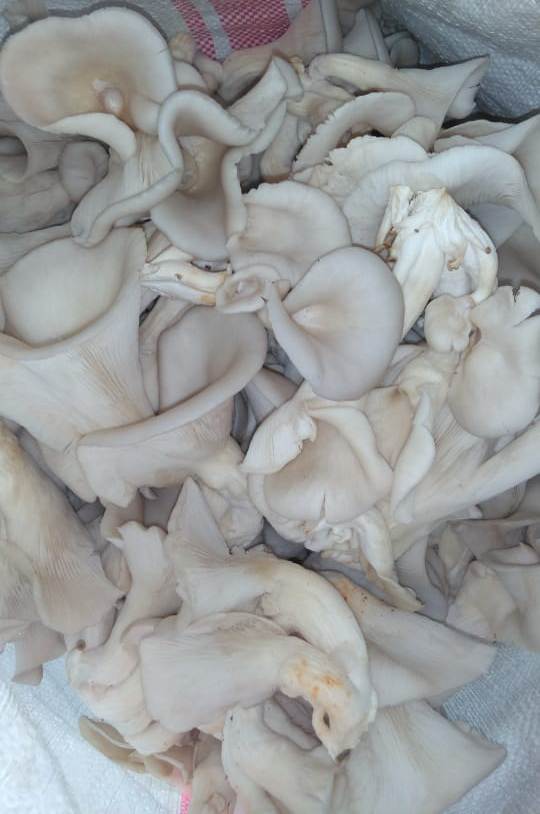
A source of income rather than a culinary art
The cultivation of mushrooms is a low-resource-demanding activity. Magos Ngabirano expresses in glowing terms the financial effects of his small mushroom farm in a small hut in Mutanga Nord. Firstly, mushroom cultivation does not last more than 2 months, making it a project that yields results and dividends in a very short period.
To grow mushrooms, our cultivator starts by making his own seeds, which he nurtures in glass jars. Next, he gathers cotton leftovers or beaten rice straw, which he cooks at a medium temperature in a drum to facilitate pasteurization. Once his recipe is ready, he loads the substrate into plastic bags, avoiding any air entry that could compromise the process. In 4 or 5 corners of the bag, the seeds are introduced into the substrate, and the bag is tightly sealed. The bags are carefully stored on wooden slat shelves in a cool and humid place, protected from the sun. After 21 days, the first mushrooms are harvested. A well-made bag produces an average of 2 to 3 kg. A mushroom farm with 500 bags produces between 1,000 and 1,500 kg in 90 days, while the maintenance cost of one bag is 2,000 Fbu, it can yield up to 10,000 Fbu.
For a young entrepreneur like Magos Ngabirano, the difference between the selling price and the cost of his business indicates a significant margin in terms of income to boost the businesses of young people who lament that they lack startup capital.
Magos's intention is not only to generate income with his mushroom hut, but rather to raise awareness among other young people to be aware of opportunities that are right in front of them but are not exploited due to ignorance. Additionally, he wants to teach this technique to the young girls and women beneficiaries of COPAD so that they can produce oyster mushrooms on their own and thus combat severe malnutrition prevalent in families, especially among children under 5 years old and pregnant or breastfeeding women.
With the ease of mushroom cultivation, if all the young people and women struggling with underemployment engage in it, the entire country can meet its local consumption needs and consider exporting to Africa and the world to bring foreign exchange to the public treasury.
The Editorial, ID


